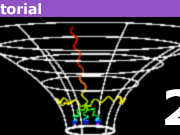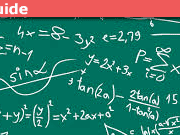I Know the Math Says so, but Is It Really True?
I’m sure anyone who has hung out long enough here on Physics Forums has encountered threads that go something like this (I’ll use an example based on threads I’ve seen and participated in in the relativity forum, but I’m sure similar things occur in other forums as well):
Original Poster: I don’t understand how black holes can exist. Doesn’t it take an infinite time for anything to fall in?
SA/Mentor: The “infinite time” is just coordinate time; if you calculate the proper time experienced by the infalling object when it reaches the horizon, it comes out finite.
[Exchange follows in which the actual math may even be shown or linked to.]
Original Poster: Sorry, I don’t understand all that math. Can’t you explain it in plain language? If you can’t put it in terms that make sense to me, I don’t believe it, no matter what your math says.
(Please note, the above are not direct quotes, and I am not going to name any names because I have no desire to single anybody out. I am simply trying to distill a common argument down to what seems to me to be its bare essentials.)
What I’m about to say is going to sound harsh, and in a way, it is harsh, which is why I’m saying it here instead of in any of the numerous forum threads in which I’ve been tempted. Here it’s not directed at anybody; I’m just stating something that I think is true. Here it is:
Table of Contents
If you don’t understand the math, you’re not entitled to an opinion about the theory.
Richard Feynman once said, “If you want to understand Nature, you must learn the language She speaks.” It’s all very well to try to get a start by reading descriptions in English, or whatever your language of choice is, of what a scientific theory says. But those descriptions are not the theory. You can’t form an opinion about the theory from them. You have to understand the actual theory, i.e., the math.
“But scientific theories aren’t just math.”
Yes, I know that. The math is no good unless you have some way of linking the math up with experience. That’s also part of the theory, yes. But that doesn’t mean you can get away with not understanding the math, because (1) the math is what makes the predictions, and the predictions are numbers anyway, and (2) the data you’re going to compare the predictions with are numbers too, often numbers which require sophisticated interpretation before you can compare them with the predictions. And how do you do such sophisticated interpretation? With math.
I want to make it clear what I am not saying. I am not saying that scientists, and people like me who are not practicing scientists but who are knowledgeable about at least some areas of science, shouldn’t try to give clear descriptions in the plain natural language of what a theory says. They should. I try to do that here on PF. But these are descriptions of what the theory says, as best it can be translated from math into natural language. The OP in my example above, and many others like him, want to demand proofs in natural language that the theory is correct, and that is just not going to happen.
“No, you’re wrong. I don’t insist on a proof. But I do insist on some explanation of what’s going on that makes sense.”
Same answer: there may not be any such explanation in a natural language that “makes sense” according to your criterion. (Very often the person making this demand doesn’t realize that what “makes sense” to them already implicitly makes a lot of assumptions that are simply not true in general, however good they may be as approximations in everyday life.) Or there may be such an explanation, but nobody has thought of it yet. It can take decades even for experts in the field to understand some aspect of a theory, and they know the math. (The history of theorists’ understanding of Schwarzschild spacetime is a good example of this, one which has given rise to a fair proportion of the threads that first gave me the idea of writing this post.)
“Yes, I know your math says X. But this other math says Y, which is inconsistent with X. And Y seems much more intuitively sound to me. So I believe Y.”
(For example, X = the proper time to the horizon for an infalling observer is finite; Y = the coordinate time is infinite.) No, Y is not inconsistent with X. To someone who understands the math, this is obvious; but if you don’t understand the math and are relying on natural language descriptions, yes, they certainly can sound inconsistent, particularly since many authors are sloppy in their terminology because they are more concerned with getting across some pictures of what they’re talking about than with strict accuracy and consistency. They don’t expect what they write to be taken as a proof of the theory, or a completely consistent explanation of it, just as an attempt to describe some aspect of it in a way that is not going to be judged based on apparent consistency with other aspects.
“So you’re saying I can’t trust these authors to tell me what’s true?”
If by that you mean “tell a completely consistent story that encompasses all aspects of the theory”, then no, you can’t. There is just no way to tell that story without the math. Here’s why: a theory is not just a description of what happens. It’s a way of generating predictions about what will happen in scenarios you haven’t looked at yet. For practicing scientists, of course, “scenarios you haven’t looked at yet” means “scenarios that haven’t yet been tested in experiments by anyone”, so a practicing physicist in General Relativity doesn’t have to spend a lot of time verifying that GR gives the correct prediction for, say, the precession of Mercury’s perihelion; he’s already been there and done that. But if you’re posting here on PF asking questions about GR, you probably haven’t been there and done that; so for you, it’s legitimate to ask how GR comes up with the correct prediction for the precession of Mercury’s perihelion (or anything else it predicts). But you can’t do that just from natural language descriptions of GR, because GR doesn’t use natural language descriptions to make its predictions; it uses math. So relying on natural language descriptions of GR to generate your predictions won’t work; you’ll be working with the wrong set of concepts.
Here’s a simple example (using SR rather than GR, but the point is the same): we get fairly frequent threads here on PF where someone is trying to figure out how “time dilation” works and getting nonsensical answers. The thread will go on for many, many posts, with people trying to explain why the OP is getting nonsensical answers and how they need to change how they are looking at the problem, but sometimes it just doesn’t get through. The reason is simple: the OP simply doesn’t get that “time dilation” in SR is not a fundamental concept; it’s not what the theory uses to generate predictions. All it is is a language that some physicists use to describe what happens, *after* they’ve already made a prediction using the actual theory (the math) and verified that it’s correct.
“But then why do all those pop science books and TV shows give all those colorful natural language descriptions? Aren’t they trying to explain the theory to us?”
Yes and no. They’re trying to “explain” the theory, for some value of “explain”, yes; but if you’re asking questions here on PF, you’re probably not their intended audience. If you’re asking questions about a scientific theory here on PF, you’re already different from most people who read popular books or articles about science. Most people who read natural language descriptions of a theory don’t want a completely consistent all-encompassing story that they can use to generate predictions; they just want a quick “sound bite” that gives some flavor of what the theory says. Those are the people most of these popular authors are writing for. (There are exceptions, and I and others here on PF try to point to them where we can. Kip Thorne’s Black Holes and Time Warps is one example, a popular book that, while it can’t tell the complete story since it doesn’t include the math, manages to tell quite a lot of it without too much distortion in translation. But even that isn’t enough to “prove” that GR is “correct” or to use it to make correct predictions if that’s what you’re looking for.)
If you’re posting here on PF, you are hopefully looking for more than just a quick sound bite or a nice-sounding description that may or may not match the actual theory. That’s great! Please post and ask questions. But don’t be fooled into thinking that we can paint a comprehensive, self-consistent picture of any scientific theory, that generates correct predictions and shows you how it’s done, without using the math. It can’t be done. So if that’s what you’re looking for, you’ll have no alternative but to learn math. If you aren’t willing to do that, then you aren’t entitled to an opinion about the theory. You may not like it, but that’s the way it is.
- Completed Educational Background: MIT Master’s
- Favorite Area of Science: Relativity










direct observations of what occurs inside the event horizon are speculations in that they cannot be observed
"No. They can be observed. Just not published in any journal outside the horizon.
But I wonder what the consequence is of accepting that particles (solar wind) can be deflected by something that has no particles (earth's magnetic field).
"
But the Earth's magnetic field is created by moving, charged particles in the Earth's core via a dynamo effect. So it's really a question of how the charged particles in the Earth's core interact with the charged particles in the solar wind.
Also note that the charged particles in the solar wind of interest are primarily electric monopoles; i.e., particles that have a net charge, unlike electric dipoles or electric quadrapoles, etc. The range of the electric fields associated with electric monopoles is much greater than that of electrically net neural particles such as dipoles, etc. The range can extend really, really far. Also, the trajectory of electric monopoles can change quite significantly when moving through a magnetic field. Contrast that with electric dipoles that might feel a torque, but their trajectories don't change much, comparatively. Doing the physics, complete with the mathematics, will show why this is.
(And as @PeterDonis mentioned, electric and magnetic fields don't come into being instantaneously over a distance; they propogate at speeds less than or equal to the speed of light in a vacuum, each one being
proportional to[a function of] the rate of change of the other.)Now, you might be saying, "sure, but the charges in the Earth and the charges in the solar wind don't touch each other." Well, don't they? Not by most definitions, no. But how exactly do you define "touch" in this scenario?
The reason your feet don't fall through the floor is ultimately the interaction of your feet and the floor's electromagnetic forces together with the Pauli Exclusion Principle as applied to particles subject to the electromagnetic force. It's the net balance of attractive and repulsive forces that define what "touching" is. We might define the interaction between the Earth and solar wind in a similar fashion, except that since we're dealing with electric monopoles, the interactions can easily propagate out to much greater distances. [Edit: Of course, the Pauli Exclusion Principle plays no role at all at such distances. I'm just saying that it's still about interacting forces and their associated fields.]
https://blogs.umass.edu/donoghue/research/quantum-gravity-and-effective-field-theory/
It is generally thought all our QFT theories are just effective and break down at about the Plank Scale. The next stage is to find a theory for below the Plank Scale and experimentally test it. Could such be the fabled Theory Of Everything? Maybe. It could also be turtles all the way down. We simply do not know, but it is the quest of science to find out.
This brings up the old conundrum of renormalisation. Thanks to Ken Wilson, we know a lot more about it these days. But a discussion of that requires a whole new thread.
Thanks
Bill
it's how lay people think.
"
But … the universe is under no obligation whatsoever to act the way lay people think it acts.
Or, put another way, if the universe does not meet your expectations, that is not the universe's problem.
I suppose the idea that everything that exists is made up of particles is, for whatever reason, ingrained. I shall try to let it go.
"Well, maybe this will help:
You are made up of particles, and those particles are made up of particles, and those particles are made up of particles. But eventually you get to the last particles, the fundamental ones that we describe as fields. They cannot be made of anything, because then they wouldn’t be fundamental. They are just themselves. And why should they be anything else than themselves?
I wonder what the consequence is of accepting that particles (solar wind) can be deflected by something that has no particles (earth's magnetic field)
"Why would there be any particular consequences?
All the mental knots you are tied in are just your own philosophical assumptions. Stop telling the world that it needs to conform to your philosophy. Let it show you how it actually behaves instead.
See how frustrating I become? And it's not deliberate – it's how lay people think.
"
So if this …
"
Magnetic fields are part of the electromagnetic field. The electromagnetic field itself is what magnetic fields are "made of". There is no need for them to be "made of" anything else.
"
… isn't in your frame, what is?
The other way around is much easier. You can write the math without any spoken language. And it surprisingly translates into any other spoken language. Same as music. Math and music are the only universal languages. Well, maybe bureaucracy, too, according to Bones.
"
Sure, but you're talking about just reading off the symbols and perhaps even the meaning of each ("force" instead of "F") but you're not talking about translating the meaning of a whole equation.
How can something exist that is not made of anything?
""
I guess it's a language problem.
"I don’t think it is a language problem. I think it is an erroneous philosophical concept that you are trying to push onto the world. You are assuming that something that exists must be made of something and are getting frustrated because the best description of the world doesn’t seem to conform to your philosophy. The best solution is to discard the erroneous philosophical concept.
I'm reading that one of the objections to Newtonian explanations of gravity is that it is force acting at a distance – and I realise that that is exactly what magnetism is.
"
No, magnetism is not "force acting at a distance" in the sense of Newtonian gravity. Magnetism is propagated at the speed of light, in accordance with relativity.
"
I get to the point of realising that there is very little discussion of what a magnetic field could be made of.
"
Magnetic fields are part of the electromagnetic field. The electromagnetic field itself is what magnetic fields are "made of". There is no need for them to be "made of" anything else.
** Well, that not exactly true since you COULD use English to describe the math but to those who don't already understand the math, it would require reading several advanced math textbooks plus a physics book or three and it would require that the audience understand everything that you read.
"
The other way around is much easier. You can write the math without any spoken language. And it surprisingly translates into any other spoken language. Same as music. Math and music are the only universal languages. Well, maybe bureaucracy, too, according to Bones.
The best example is Hawking Radiation. EVERYWHERE in popsci presentations you will read/hear/see that this is explained as virtual particles near the Event Horizon. That explanation is, at best, a heuristic that sort of describes kind of what's more or less happening. It was stated by Hawking and he clarified it by saying that it wasn't really what's happening but it was as close as he could come using English and not math.
** Well, that not exactly true since you COULD use English to describe the math but to those who don't already understand the math, it would require reading several advanced math textbooks plus a physics book or three and it would require that the audience understand everything that you read.
I guess it's a language problem.
"
Depends on what you mean. It is NOT a problem w/ the English language, it is only a "language" problem in the sense that math is not English.
My most recent example is magnetism. I'm reading that one of the objections to Newtonian explanations of gravity is that it is force acting at a distance – and I realise that that is exactly what magnetism is. So then I'm googling and Youtubing in a fairly haphazard way.
"
Here is a nice interview with Richard Feynman about such questions in general, and magnetism in particular:
"
How can something exist that is not made of anything?
"
How can it fail to exist if we can measure it and see what it does?
In essence, if some of the variables in a Lagrangian are homogeneous (meaning that, e.g., ##L(\alpha r) = a^k L(r)## for some constant ##k## (where ##k## might be different for different variables), there are cases where the homogeneities in the different variables can combine to result in merely multiplying the Lagrangian by a constant factor. This doesn't change the equations of motion, but does correspond to the existence of similarly shaped orbits of different size and energy. This symmetry doesn't commute with the Hamiltonian, hence is not associated with a conserved quantity.
There are other cases where mechanical similarity is useful. L&L give examples.
I have read a comment on stackexchange that the only reason that Newton's mechanics can't be completely derived from Noether would be its incompleteness. I'm not sure how to take this since my physics knowledge is far too basic.
"
Well, one reason is you need to assume the Principle of Least Action (PLA). That is derivable from QM. So at rock bottom, classical mechanics is a limiting case of QM. Even assuming the PLA and Noether, a bit more is required as detailed in Landau – Mechanics eg why does mass appear in the free particle Langrangian.
Thanks
Bill
I have read a comment on stackexchange that the only reason that Newton's mechanics can't be completely derived from Noether would be its incompleteness.
"
??? The Kepler problem is overcomplete in that it has more first integrals (constants of the motion) than are needed to solve the equations of motion, i.e., energy, angular momentum, and the LRL vector.
But none of these yield Kepler's 3rd law.
Kepler's third is basically Newton's gravitation approximated, […]
"
Huh? Kepler's third law is an exact result from the theory of Newtonian gravitation. (A symmetry underlies it, but that symmetry is not associated with a conserved quantity.)
[Btw, I leave it to Mentors to decide if/when to fork this into a new thread. ]
]
Newtonian gravitation is not the only theory that has energy conservation in an ##r^{-1}## potential (the obvious other such theory is electromagnetism). So that alone is not enough to get you to Newtonian gravitation.
"
As far as I understood the challenge, uniqueness wasn't required. The gravitational potential for masses can be measured and from there on only math is necessary.
is the plan ok?
"
Newtonian gravitation is not the only theory that has energy conservation in an ##r^{-1}## potential (the obvious other such theory is electromagnetism). So that alone is not enough to get you to Newtonian gravitation.
I think you mean an ##r^{-1}## potential.
"
Sure. But is the plan ok?
Newton's gravitation is energy conservation in an ##r^{-2}## potential.
"
I think you mean an ##r^{-1}## potential.
Try deriving Kepler's 3rd law using Noetherian symmetry/conservation techniques…
"
Is that really hard? Kepler's third is basically Newton's gravitation approximated, and Newton's gravitation is energy conservation in an ##r^{-2}## potential.
This would be at least my plan to approach it. Where is my mistake?
Surely that can't be true. (Try deriving Kepler's 3rd law using Noetherian symmetry/conservation techniques…
"I am not sure why you think that is a necessary feature for a theorem to be classified as the single most important theorem in physics. I stand my my opinion, but being an opinion you are welcome to your own.
I thought it was just Einstein+Grossman who put together GR using Riemannian geometry
"
Einstein came up with the field equation (at least by one possible route–see below for another route that Hilbert took). Grossmann helped him to learn Riemannian geometry.
"
What exactly did they need help with from Gottingen?
"
Einstein was stuck regarding a particular aspect of the field equation. (It's been a while since I read up about this so I can't say off the top of my head exactly what aspect it was.) I don't know that his primary purpose in visiting Hilbert in Gottingen was to see if Hilbert could help him get unstuck, but it probably was at least in the back of his mind. I also don't know that the talks with Hilbert were the primary thing that got Einstein unstuck, although they might well have helped.
However, the greater impact of the Gottingen visit was not on Einstein but on Hilbert. After mulling over his talks with Einstein, Hilbert came up with a simple, quick route to the field equation for gravity using the principle of least action. He came up with what is now called the Einstein-Hilbert Lagrangian based on obvious and simple considerations, and then it was a simple matter to derive the Euler-Lagrange Equation for it, and boom! he had the field equation. As MTW say in their discussion of six different routes to the field equation, "no route to the field equation is quicker".
Marcel Grossmann.
"
Hmm. I thought it was just Einstein+Grossman who put together GR using Riemannian geometry (but I haven't read a full history). What exactly did they need help with from Gottingen?
IMO [Noether's theorem] is the single most important theorem in all of physics.
"
Surely that can't be true.
(Try deriving Kepler's 3rd law using Noetherian symmetry/conservation techniques… )
)